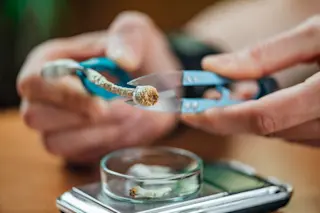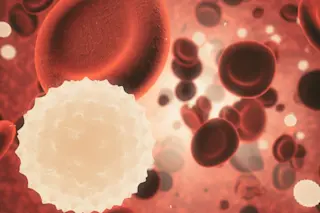A recent study found that most people treated with a single high dose of psilocybin, the active ingredient in psychoactive mushrooms, showed a long-lasting change in personality—namely, an increase in openness. One of five broad measures of temperament used by psychologists, this quality is generally defined as openness to new ideas or experiences, awareness of feelings in the self and others, and is strongly tied to creativity and aesthetic appreciation. This is one of the first studies to link a single treatment with a drug in a laboratory setting to a long-lasting change in personality.
What’s the background:
The present study is an analysis of the results from two previous trials, published in 2006 and 2011. These showed that lab-administered psilocybin was linked to long-lasting improvements in study participant’s relationships, mood and general well-being, as reported by study participants and corroborated by their family members/friends.
Researchers divided the 52 participants into two groups: those who had a “complete mystical experience,” and those who did not.
Although it might seem hard to believe, given the vagaries of spiritual experience, psychologists have a relatively well-defined and established definition for a “complete mystical experience:” one in which a person experiences a sense of unity with the world and other people; feelings of blessedness and sacredness; a sense of inner presence or divine force; and the feeling that what is perceived is “more real” than ordinary reality, among other qualities. Results by the lead author of this study, Johns Hopkins University researcher Roland Griffiths, have shown this can come about by taking psilocybin. But similar (or indistinguishable) experiences can occur through non-drug means, such as through prayer, fasting, sex, sensory-deprivation, etc.
People who had a “complete mystical experience” during their psilocybin trip scored significantly higher on measures of “openness” more than a year afterward. Those who didn’t have a complete mystical experience did not score significantly higher on these same measures.
Scientific Tripping:
During all tests, patients sat in a comfortable room, given eye-shades and told to focus their thoughts inward. They were accompanied by trained staff to help counsel them or provide support if the patient became anxious, upset, etc.
All participants were screened for mental disorders hadn’t previously taken hallucinogens.
What’s the Context:
Qualitative and quantitive research has shown that personality traits tend to remain relatively stable in adults, although certain life-changing events have been linked to major changes in core measures of temperament. Changes brought about by single treatments with drugs tend to be short-lived.
Researchers say that the mystical experience brought about by drugs like psilocybin is likely responsible for the long-lasting change in openness, which the researchers say they think is permanent.
Although there was no “control” in this study, researchers were able to separate the group by judging whether or not they had a discrete “compete mystical experience.” They also showed that the higher participant’s rated the experience, the more likely they were to have a significant change in personality.
Not So Fast:
There was no control group in this study (one that didn’t take psilocybin). Without that, the influence and confounding role of a placebo effect cannot be overlooked.
Spiritual experiences and personality traits are hard to measure. The link between psilocybin, mystical experiences, and changes in personality are also poorly understood. The results shouldn’t be taken as definitive proof that psilocybin causes permanent changes in personality.
Psilocybin can be dangerous, especially in people with underlying mental conditions, and the researchers don’t advise anybody to try this at home. Even in a carefully controlled setting, about one-third of the participants in the study experienced high levels of anxiety after taking the drug. But through the help of the study “guides” and the calming atmosphere of the controlled trial, everyone overcame the anxiety and not a single participant reported lasting ill effects from the experience.
The Future Holds:
While other research suggests that psilocybin has the potential to treat mental conditions like anxiety and depression, this study shows it also may have the power to change mentally-healthy people’s personalities, likely for the better (as rated by the study participant’s themselves and their loved ones).
Psilocybin obviously remains illegal as a recreational drug, and is only legal under controlled experiments approved by the federal government.
Reference: K. A. MacLean, M. W. Johnson, R. R. Griffiths. Mystical Experiences Occasioned by the Hallucinogen Psilocybin Lead to Increases in the Personality Domain of Openness. Journal of Psychopharmacology, 2011; DOI: 10.1177/0269881111420188
Image: Erik Fenderson / Wikipedia













